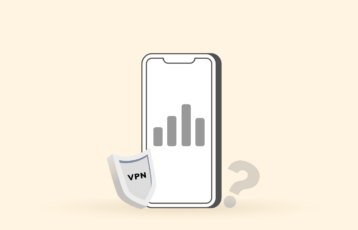Amidst the rising cybersecurity incidents that even target individuals globally, the typical security tip you would hear from every privacy advocate (including us) is using a VPN. VPNs undeniably remain the best workaround to evade content restrictions and censorship. However, as a responsible internet user, you deserve the right to know all about this service and opt to use a VPN by choice instead of merely following others’ advice.
So, without further ado, let’s start with the pros and cons you’ll likely experience as a VPN user. By the end of this guide, you’ll be clear about how to protect your online security.
What to expect when using a VPN – Quick look at the pros and cons
Short on time to read the details? This table will help you quickly understand the benefits you get and the problems you might face when using VPNs.
| Pros | Cons |
|---|---|
| Ensures privacy and anonymity as your online data and internet traffic gets encrypted | The underlying encryption technology may reduce the connection speed |
| Unblock all types of restricted and censored content | Unrestricted access to content may require some physical monitoring, such as parental monitoring for kids and teens |
| Change your online location to any specific region to get access to local content | Many VPNs may fail to work against anti-VPN technology |
| Improved online security as VPNs mask your actual IP address | Rerouting traffic through different servers may cause connection drops, especially on unstable internet connections |
| Protect yourself from ISP throttling and government surveillance | Some governments ban VPN use or label VPNs illegal |
| Enjoy safe and smooth gaming and torrenting | Torrenting files that infringe copyrights may cause legal troubles if caught |
| Eliminate price discrimination while making purchases | Free VPNs may not offer better online anonymity, hence leaking your actual location online |
What is a VPN?
A Virtual Private Network (VPN) establishes an encrypted tunnel for data transfer between you and a remote VPN server. It hides your IP address with the VPN server’s IP address from a different location than yours.
For example, if you choose a VPN server in the US while in the UK, it would appear as if you’re using the internet from the US.
All data communicated between you and the VPN server through the encrypted tunnel remains inaccessible. VPN systems contain numerous elements that secure the VPN’s private network and the external network by which a user connects.
Using a VPN adds a strong layer of privacy and security to private and public networks, such as home WiFi networks or public Wi Fi hotspots. All thanks to the advanced encryption VPNs use.
To better understand this, consider a public WiFi network, like the WiFi at a coffee shop or the airport’s passenger lounge. You would typically join the WiFi network and use free internet without a second thought.
However, you are unaware of who may be watching your traffic through that network. You can’t even be confident whether a public Wi Fi network is real or a fake network set up by a hacker!
Think about all the passwords, credit card numbers, banking data, and private information transferred between you and the web. All this information remains potentially exposed to the prying eyes.
Now, if you connect to the same public network, this time with the protection of a VPN, you should no longer worry about anyone intercepting your data. Neither users prying around for unprotected victims nor the network operator can access your data.
You must always remember that you can’t tell whether a WiFi network is legit or not. Just because it’s named “Airport_WiFi” doesn’t mean it’s the real WiFi operated by the airport.
When using private WiFi at home, you don’t have to worry about anyone spying because you own the WiFi network. But still, a VPN has benefits here, too.
For instance, your ISP (internet service provider) can always see what you do online. ISPs can even sell your data to other online advertisers to make money. Since you’re already paying the firm, you can prevent data monetization by protecting it all with a VPN.
VPN advantages and disadvantages
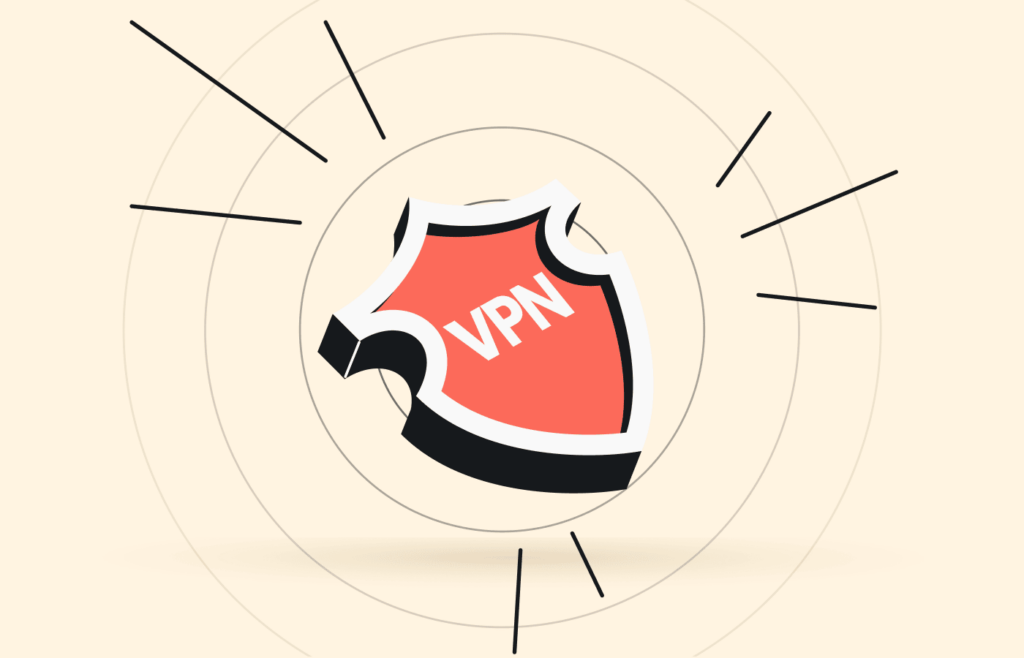
A Virtual Private Network VPN is a handy tool. But, given the costs incurred in subscribing to one, you might be skeptical about whether you should invest in a VPN service or not.
So below are the key pros and cons of using VPNs. Knowing these will help you determine what benefits you should expect from this tool and the drawbacks of using one.
Some benefits may fully convince you to buy a VPN now. On the other hand, some disadvantages may make you conclude you should not get one as it does not suit your browsing habits. So, don’t be quick to jump to a conclusion; read along, think it over, and decide your next move. If you’re concerned about online privacy, you’ll definitely choose to use the service.
Advantages of VPN
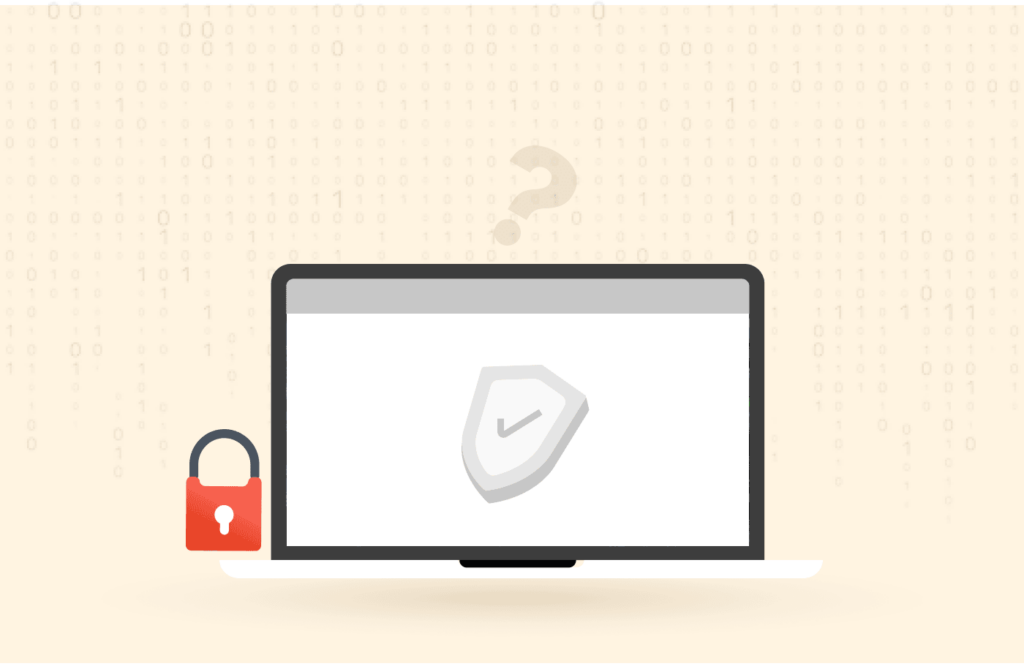
1. Protects your information
No software can protect your private data as efficiently and affordably as a good VPN. The standard VPN service costs around $5-10 monthly if you sign up for a long-term plan. But, honestly, this cost is nothing compared to the benefits you accrue.
Industry leaders in the VPN market, including NordVPN and ExpressVPN, offer frequent discounts for new subscribers. If you can avail of a discount, you can test-run a VPN for a modest monthly fee and see whether the benefits are worth your money.
A VPN service secures your data by transmitting it through its encrypted tunnel. This way, no one can intercept and decrypt your data. Hence, you get a stress-free internet experience for only a meager amount of money.
Most elite VPN services use robust encryption standards to ensure your data stays secure at any cost.
Undoubtedly, marketing companies and tech giants like Google, Facebook, Instagram, and third-party apps and services hunt for user data. The more data they’ve got on you, the higher the chances of data theft or misuse by a hacker.
A VPN is your one-stop solution. When a VPN protects you, it detaches you from the data you generate and encrypts it to remain safe even if someone manages to trace your traffic.
2. Secures your online identity
Identity theft is now getting increasingly widespread. You can have your identity stolen unknowingly, only to realize it after getting penalized for a crime you didn’t commit. Otherwise, a cybercriminal might sell fake gold jewelry under your name on Facebook or eBay while you’re asleep.
With an unsecured internet connection, anyone can steal your social media details, such as Facebook credentials or banking details, in an instant. And people can commit all sorts of crimes using your identity as a mask. So, while you may remain content after logging out of your social media accounts, someone may use your stolen credentials to log in and carry out illegal activities.
In 2019 alone, the FTC (Federal Trade Commission) received 3.1 million+ consumer reports regarding online scams and fraud. Some 650,500 were directly related to identity theft, and 1.7 million reports were linked to fraud. Because identity theft also falls in the category of fraud, there is some overlap between the two stats.
A VPN is the most effective way to secure your identity from hackers and other online trackers. Unfortunately, government and marketing agencies remain rushing to gather as much user data as possible. A VPN is your shield, hiding your identity from all the data predators.
You can, of course, shield your identity from theft in various ways. For instance, avoid using social media and Internet banking services, and do not save any of your information online. But who can live like that? So, why not just get a VPN and enjoy the pros of online security while forgetting the cons of information exposure online?
3. Hides your location
As more aspects of our daily lives transition offline to online, businesses and websites want to know more about us to boost their services.
An essential part of this information is our location. Marketing companies use our location to bring us personalized content common among people who live in the same area as we do.
Some would deem websites recording a user’s location completely fine, as this brings them the appropriate content, discounts, offers, and events nearby.
However, the problem is that such websites or apps prioritize their profits over the users. So, the benefit that we users get is not their primary purpose when recording our location and tailoring content.
Let’s do a short experiment. Go to websites like www.theguardian.com or www.youtube.com with and without a VPN. You will notice a clear difference between the content and offers you see when switching your location using a VPN.
Much educational and entertainment content on YouTube is unavailable in Asia, Africa, or the Middle East. In the same way, several other topics aren’t accessible to audiences in the West. This difference in the content you see is because services and apps trace your location and change the content accessibility accordingly.
On the contrary, with a VPN, you can access your desired version of the web from anywhere you want. For instance, you can use your VPN to connect to a server in France. Then, you’ll see the content and ads available to people in France.
Similarly, several websites, mainly news sites and search engines, specialize their content to the geographical location of their audience. As a result, it is common for news outlets to report a story differently, depending on the area where it will be published.
So, it’s improbable that you see the same news or search results from two different locations. When a VPN hides your area, you see the default content from the specified location on sites like Google or YouTube.
Secondly, by hiding your country’s IP, a VPN adds to your security as hackers cannot target you. Hackers often identify their targets by tracking users’ locations.
For example, hackers know that people living in a posh area will likely have more money in their bank accounts and use online payment methods. Hence, they will target internet users in this area through phishing attacks, ransomware attacks, and spyware attacks to attain confidential data. With a VPN, you can significantly reduce this risk by using a location not targeted by hackers.
4. Unblock streaming sites
Social media sites and streaming services block access to certain content when your location is exposed. These are also called geo-restrictions.
VPN services can bypass geo-restrictions as they can mask your location with one from where the content you want to view is available.
Governments may also want to block specific content for users to prevent exposure to illegal or disturbing content. Examples of websites governments block are terrorist sites, websites containing propaganda against a country, religious websites, adult sites, etc.
While blocking these sites may seem the best decision for government authorities, it deprives citizens of their freedom on the internet. Furthermore, professionals, such as researchers and writers, must access such websites to carry out professional tasks.
Many people spend more time streaming despite the social distancing measures imposed worldwide due to the COVID-19 pandemic. However, due to geo-restrictions, someone in Asia might miss watching a famous TV series because it isn’t available there. The only way to access such media is to use a VPN.
With the right VPN service provider, you can unblock any Netflix version without worrying about the pros and cons of such a geo-restriction bypass. So, for example, you can access US Netflix outside the country. And, if you’re already in the US, you can access Netflix movies and shows only available in the UK, which is an entirely new range of TV shows and movies you never knew existed.
Other entertainment sites like Amazon Prime Video and Hulu also use geo-restrictions; a VPN will help circumvent it all.
5. Stop internet throttling
ISPs often boast of having unlimited bandwidth while they actually don’t. It is a common ploy ISPs use to get you signed up for an “unlimited data” deal.
After you have used up a set amount of bandwidth in a month, your ISP will control your connection and reduce your internet speeds so that you use the internet at a pace convenient for them.
When your internet provider lowers your download speed, it is called “internet throttling or bandwidth throttling.” It is a nightmare for gamers and people who mostly stream or download files through torrents. One of the various benefits of using a VPN is that it can nullify internet throttling quickly. And if you choose the right VPN, it can even increase the internet speed.
6. Bypass firewalls
Most content censorship comes from firewall rules that the authorities apply to websites. Hence, even if a service is available to you, you can’t access it on your network within the premises. That’s how your employer or school blocks social media and streaming sites on their network. The same procedure often helps government authorities censor certain content for the public.
While this censorship might have some pros, its cons become notable when it hinders your activities, triggering the need to use a VPN.
With a VPN, you can bypass these firewall restrictions as the tool hides your IP address and device from the network provider. Hence, the firewall can’t restrict you from accessing the desired website; otherwise, it blocks you.
(Nonetheless, be sure to use this feature ethically and responsibly.)
7. Shop at better prices
Price discrimination is a common issue in online businesses. Every service tends to charge more, from users in high-income countries to airlines and eCommerce platforms. In contrast, they often offer better deals and discounts to users in low-income regions.
While that’s useful for the people in low-income regions, it unquestionably burdens the average-earning persons from otherwise high-income regions.
That’s where a VPN comes to the rescue. Using this service, you can change your online location to a low-income region or a country where you can find better deals. Then, you won’t have to pay more when you make purchases.
For instance, you can get cheaper airline tickets online when connected to a VPN server from another country.
Nonetheless, be careful about other ways the service might track your device, such as cookies. As a precaution, clear your device cache and browsing history before connecting to a VPN. Once done, proceed to visit the website you wish to purchase with. Ideally, you should use your browser’s incognito or private mode to avoid web tracking.
8. Secure gaming and torrenting
VPNs are a must-have for avid gamers and torrent users because these activities keep users on the verge of hacking and cyber threats, such as DDoS and malware attacks.
With VPNs, you can bypass internet throttling and enjoy anonymous gaming and torrenting.
For instance, your IP address remains hidden from fellow gamers who might want to ruin your game with DDoS.
Likewise, your government might have a harsh stance towards torrent users, whom it would spy on via the ISPs. However, your IP address and online activities get veiled with a VPN. Hence, you can torrent safely without worrying about legal issues.
However, make sure to torrent legal files only. A VPN won’t save you for long if your ISP catches you violating copyright or licensing policies.
9. Safe and anonymous file-sharing
While online file sharing sounds helpful, it can leave traces behind that an adversary might exploit. VPNs protect your file-sharing activities from snoopers and web trackers as they mask your online existence.
Disadvantages of VPN
VPNs from different providers have different features. While a VPN offers it all, one potential drawback might render it useless.
Go through these cons of VPNs to know which specific drawback you don’t want to have in the VPN you choose.
1. A VPN may lower your internet speed.
The connection between you and the internet through a VPN is rerouted and encrypted via a VPN server. That is why you might experience a slightly slow internet connection.
So, if you are conscious about the internet speed, you should go for a VPN with little to no impact. (You can check out these top 10 best VPN services to choose the one that suits you best despite all its pros and cons.)
Although, most users won’t even notice the difference in the internet speed. But while doing activities requiring a high-speed connection, you will face problems if you don’t choose the right VPN. For example, gamers playing multi-player games online should look for the best VPNs for gaming to avoid experiencing any lag.
2. Don’t take your VPN as an all-in-one solution.
While a VPN hides your online activities to save you from several threats, it can’t protect you amidst unsafe web surfing practices.
For instance, a VPN can’t prevent your online accounts from hacking attacks if you use weak passwords.
Similarly, you must beware of suspicious websites that can infect you with malware. Always use robust anti-virus software to remain safe from malware and viruses.
3. Some VPNs may not be able to access particular websites.
Some streaming services and entertainment sites ban tools that evade content restrictions, such as proxies and VPNs.
For example, Netflix bans traffic coming through proxies and VPN servers, preventing VPN users from bypassing content restrictions set by Netflix.
If you try to use Netflix with a VPN, you’ll get a proxy error message telling you to switch the VPN off.
However, if you want to buy a VPN specifically for watching Netflix, you should look at these specialized VPNs for entertainment websites like Netflix, Amazon Prime, and Hulu.
Comparison table for the top 3 VPN services
| NordVPN | ExpressVPN | Surfshark | |
|---|---|---|---|
| Server count | 7,600+ servers in 118 countries | 3,000+ servers in 107 countries | 3,200 servers in 100 countries |
| Simultaneous connections | 10 | 8 | Unlimited |
| Streaming support | ✔ | ✔ | ✔ |
| Torrenting support | ✔ | ✔ | ✔ |
| Cheapest plan | $3.39/month | $8.32/month | $1.99/month |
| Detailed review | NordVPN | ExpressVPN | Surfshark |
Top 3 VPN providers today
VPN services providers have increased significantly recently due to the increased demand. However, not all of them are up to the task. Here are the top 3 VPN services on the market today.
1. NordVPN
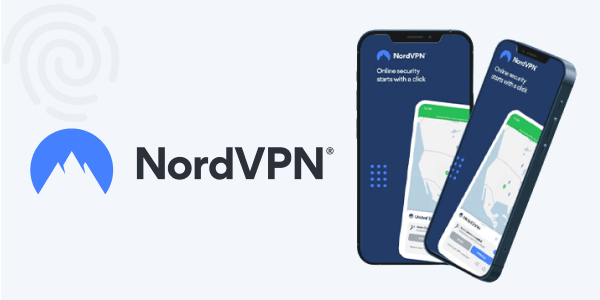
This is another well-known VPN service you can rely on. It is immensely powerful, and the massive server network will help you access blocked content in other countries.
You can install the VPN on various devices, including macOS, Android, Chromebooks, Windows, iOS, and more. Other extras include Firefox and Chrome browser extensions and compatibility with a wide range of router brands. This will help use the VPN on devices that don’t support VPNs, like PS4, Xbox, etc.
NordVPN offers plenty of security and privacy features. First, it owns and manages its server network to prevent access and interference by third parties. Second, the apps use military-grade AES 256-bit encryption, double VPN, kill switch, DNS leak protection, and Threat Protection features. Third, the provider has a strict no-logs policy and doesn’t keep logs.
2. ExpressVPN
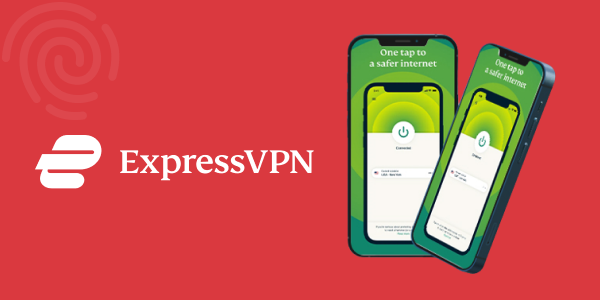
ExpressVPN trounces most VPN services and emerges at the top with the recent major network upgrades (10GB servers and 20/32 core). This gives you sufficient power for streaming, torrenting, gaming, etc.
It is compatible with multiple operating systems and has clean and intuitive apps. So this means you can install it on your Windows, iOS, Android, macOS, Linux, Amazon Fire TV, routers, and other devices. Thankfully, it allows you to have five simultaneous connections.
The VPN is highly secure, employing features like AES 256-bit encryption, kill switch, DNS leak protection, etc. It also keeps you private and anonymous with the independently audited no-logs policy.
3. Surfshark
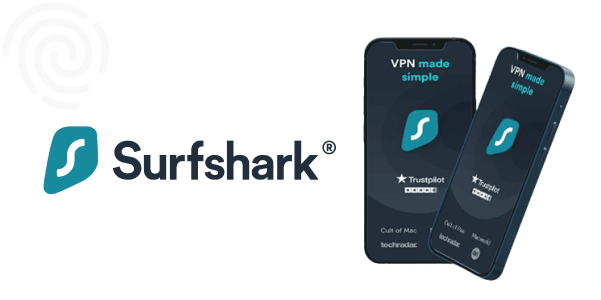
The first thing you’ll notice when you open Surfshark’s website is the market-busting headline pricing. Yes, its packages are affordable, especially the long-term ones.
Surfshark operates more than 3,200 servers worldwide to enable you to bypass geo-blocks and access your favorite content from anywhere. It has a wide range of apps that enable you to access the network through Windows, macOS, Android, Linux, and iOS devices. Unlike most of its competitors, you can connect unlimited devices.
This VPN doesn’t disappoint in terms of security. It has strong encryption, secure protocols, a kill switch, and DNS leak protection to prevent exposing your data and traffic to all and sundry. That’s not all. The service also offers private DNS to protect your browsing activities and multi-hop servers to make it difficult to track you online.
Factors to consider when choosing a VPN
With the saturated VPN market, how are you supposed to choose the best service? Here are some of the factors you should consider.
Security
AES 256-bit encryption is the standard encryption level in the VPN industry. So, as a thumb rule, you shouldn’t go below this. Also, the VPN should offer other essential security features like DNS leak protection, kill switch, split tunneling, etc.
Privacy
Another primary job of VPNs is to keep your online activities private. So, a provider that retains logs of your activities clearly defeats this purpose. Remember that most VPN services are notoriously dishonest about their logging practices, so do some initial research. Thankfully, reputable audit firms like Deloitte and PwC have audited some VPNs’ privacy policies.
Speed
You need sufficient speed for most online activities like torrenting, streaming, gaming, or casual browsing. However, how a VPN works will inevitably slow down your internet speed. Fortunately, premium VPN services use advanced and high-quality servers, so the drop in speed is barely noticeable.
Server network
A VPN with a massive server network is desirable in many ways. First, servers are less likely to be congested, which isn’t good for speed. Second, you can always switch to another reliable server if your connection malfunctions. Also, an expansive network will enable you to unblock content in more locations.
Streaming
Not many VPNs are suitable for streaming. So, look out for services that offer unlimited bandwidth and sufficient speed. Also, it should have an impressive unblocking capability to enable you to access any blocked content.
Compatibility
Most households have many internet-enabled devices. Therefore, choose a VPN that is compatible with various operating systems and supports multiple simultaneous connections.
How to install a VPN to improve your privacy
You can access your preferred VPN either from the provider’s official website or the respective app store for your device, i.e., Google Play Store or Apple App Store. Follow these steps to install the app on your device.
- Subscribe to your preferred package. The VPN options we’ve recommended offer various packages with a 30-day money-back guarantee.
- Download and install the VPN software on your device.
- Log into your account.
- Activate the kill switch feature.
- Connect to any server of your choice.
The dangers of using a free VPN
One of the primary uses of a VPN is protecting against hackers and other online threats. However, some free VPNs are known for installing malware on users’ devices, which is a huge security concern.
Another reason for using a VPN is to protect your data online. Unfortunately, many free VPNs sell your data to third parties to make an income. This information is used for targeted advertisements. Lastly, free VPNs have few servers because of the limited resources.
As a result, they are constantly congested, causing extremely slow speeds to do tasks like streaming, gaming, or torrenting.
A little about Site-to-Site VPN for businesses
While individual users can easily download and install any VPN app on their devices(s), things work differently in a corporate environment. Indeed, given the higher and diversified cybersecurity risks posed, companies need different security solutions. That’s where a site-to-site VPN comes into play.
A site-to-site VPN, also known as a router-to-router VPN, establishes a network-to-network VPN, not a PC-to-server one.
For instance, if you have a VPN service installed on your PC, the tunnel created by the VPN terminates at these two points: your device and the VPN server.
On the other hand, a site-to-site VPN tunnel is between two networking devices (generally routers bearing firewall capabilities).
These VPNs are generally used in organizations with multiple offices in different locations. Connecting to these private networks lets the staff securely communicate across the globe. It benefits firms that manage in-house data storage instead of clouds.
Pros and cons of site-to-site VPN
Like regular VPN services, a site-to-site VPN also has pros and cons for business users. So here we quickly list some obvious points.
Advantages:
- It offloads all the encryption and processing overhead from your device to the security device or router. This service frees up local resources such as processor speed and RAM usage.
- You won’t have to log in or out of a VPN continually.
Disadvantages of Site-to-Site VPN
- You can’t choose when and where to send your encrypted traffic.
- Site-to-site VPNs are static and can only exist between two remote termination points. Therefore, you won’t be able to establish an encryption tunnel from anywhere you have an internet connection.
- You need technical background knowledge or a reliable how-to guide to successfully set up a site-to-site VPN.
The need for a VPN is rising every day
The use of VPNs is constantly increasing. Especially after the Facebook information leak went viral, many users now realize that privacy comes at a cost.
Also, National Security has been using mass surveillance on citizens. While many argue that recording is necessary to combat terrorism, some consider it a way to halt the spread of ideas potentially threatening the state’s official stance.
As people realize the importance of using a VPN and the subsequent pros and cons, the VPN market grows by scores every day. Here are some obvious reasons that have orchestrated this influx.
Public networks are everywhere
Despite the abundance, public WiFi and internet hotspots are seldom secure. From the many connections on the WiFi, you can never identify a potential hacker on the network. Hence, people want to ensure their security while enjoying the free internet.
Increased personal use
Previously, VPNs were considered necessary for professional business uses only. However, this notion has recently changed as people begin to see reality. Today, VPNs are as essential for personal use as for business purposes.
Media coverage about the lack of online privacy
Recently, the idea of maintaining net neutrality has come into the limelight. And the only way to achieve this is through a VPN.
Net neutrality means that ISPs should treat all users equally with no online tracking of activities to trace individual users.
However, you can never be confident whether an ISP is trustworthy or not. As traffic comes through their servers, they may be tempted to sell information to marketers. Hence, flipping on a VPN grants you peace of mind regarding data privacy. A VPN connection is essential as it places a curtain on your internet endeavors, even hiding them from your ISP.
Will a VPN make me completely anonymous online?
Encrypting traffic and rerouting it through a VPN server helps improve your online security and privacy. However, it makes identifying or tracking your online activities harder but not impossible. Away from the marketing hype, no VPN can make you completely anonymous online.
Your internet service provider (ISP) knows almost everything you do online. Recently, the FTC released a report on how much ISPs know about what their users do online, and it’s a lot. Making things worse, Congress allows ISPs to sell anonymized data about their customers. So, the company you are already paying for your internet service is also profiting from your data.
A VPN will prevent your ISP from seeing your web traffic. Also, it will prevent advertisers from tracking your online activities and behavior. Usually, your device connects to the internet through your IP address. The VPN will hide your IP address, and only the server IP address will be visible. However, you must clear your devices’ cookies and cache before connecting to the VPN because snoopers can use them to track activities across the internet.
Will a VPN protect you against malware?
Some VPNs claim to offer features to protect you against malware. However, this is just basic protection from known malicious sites and files. On the other hand, some antivirus companies are offering dedicated VPNs. We view VPNs as privacy products, so we usually don’t test their malware-detecting capabilities.
For efficient malware protection, we urge you to install standalone anti-malware software, which will do a better job. Also, since VPNs are privacy tools, we believe VPN service providers shouldn’t be concerned with your web traffic.
Is the recent consolidation in the VPN industry a concern?
Recently, VPN service providers have been consolidating and aren’t showing signs of slowing down. For example, Surfshark and NordVPN announced that they were merging. Currently, only three companies control some of the big names in the industry.
However, this consolidation is raising legitimate concerns. First, the lack of transparency in the ownership structure isn’t inspiring. Since privacy and security are critical in the VPN industry, ownership transparency is equally vital.
When you subscribe to a VPN service, you trust it to protect your online privacy. That is why you’ll want to know the corporate entity controlling the company and its jurisdiction. Unfortunately, the picture is often unclear, yet some countries belong to the 5/9/14 Eye Alliance, which isn’t good for privacy.
Another major issue with consolidation is the lack of competition. This will ultimately lead to higher costs and fewer incentives for customers. Most VPN services in these mergers and acquisitions claim they operate independently and don’t share user data between them.
For example, Surfshark insists they don’t intend to share information ‘without notifying our customers in advance.’ However, this suggests that the door may be open for future data sharing. Nonetheless, it is too early to determine the long-term implications, but we will follow it closely and update you accordingly.
FAQs
It will depend on your location and VPN needs. For example, you should always leave it on if you live in restrictive jurisdictions like China because you can’t risk revealing your visiting sites. Also, switching your VPN on if you regularly use your device on public Wi-Fi networks is a good idea. Thankfully, many VPNs offer split tunneling, allowing you to use certain apps with your local IP address.
A remote-access VPN enables users to access their remote networks securely, which is crucial for organizations with remote offices. It helps to create a link between the company’s network and the users’ devices, allowing them to reach internal resources like printers, servers, intranets, etc.
